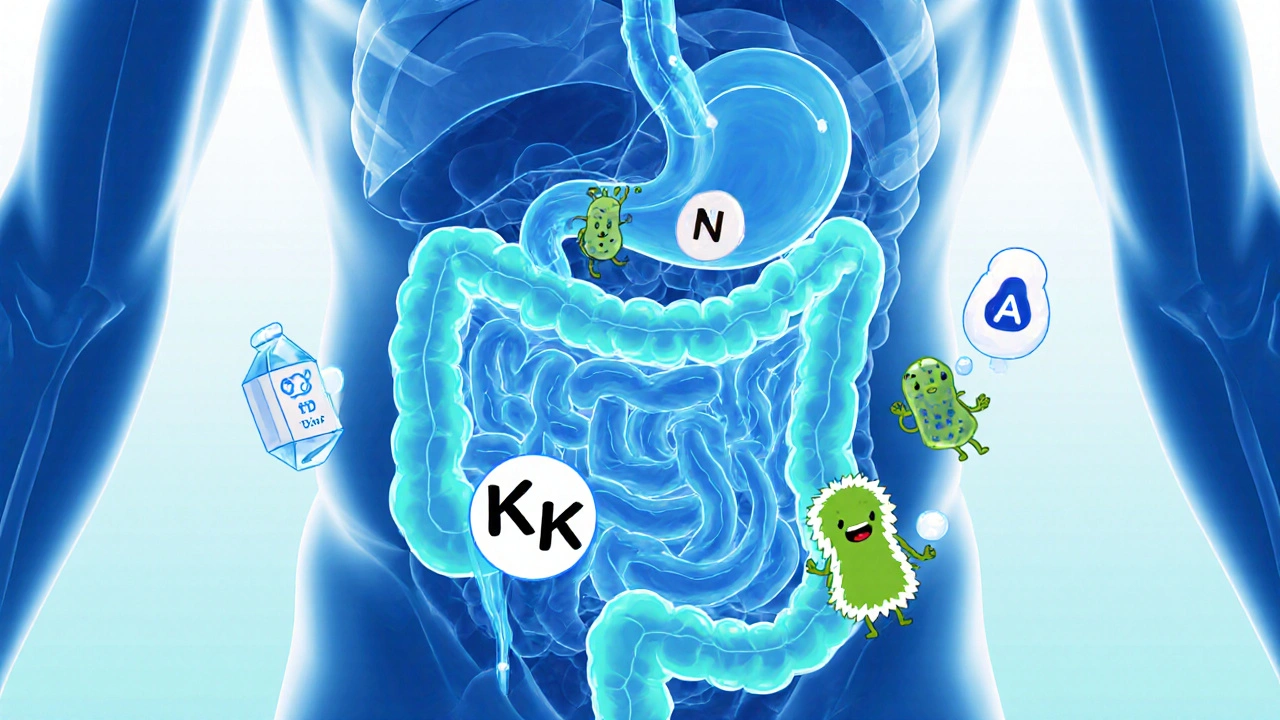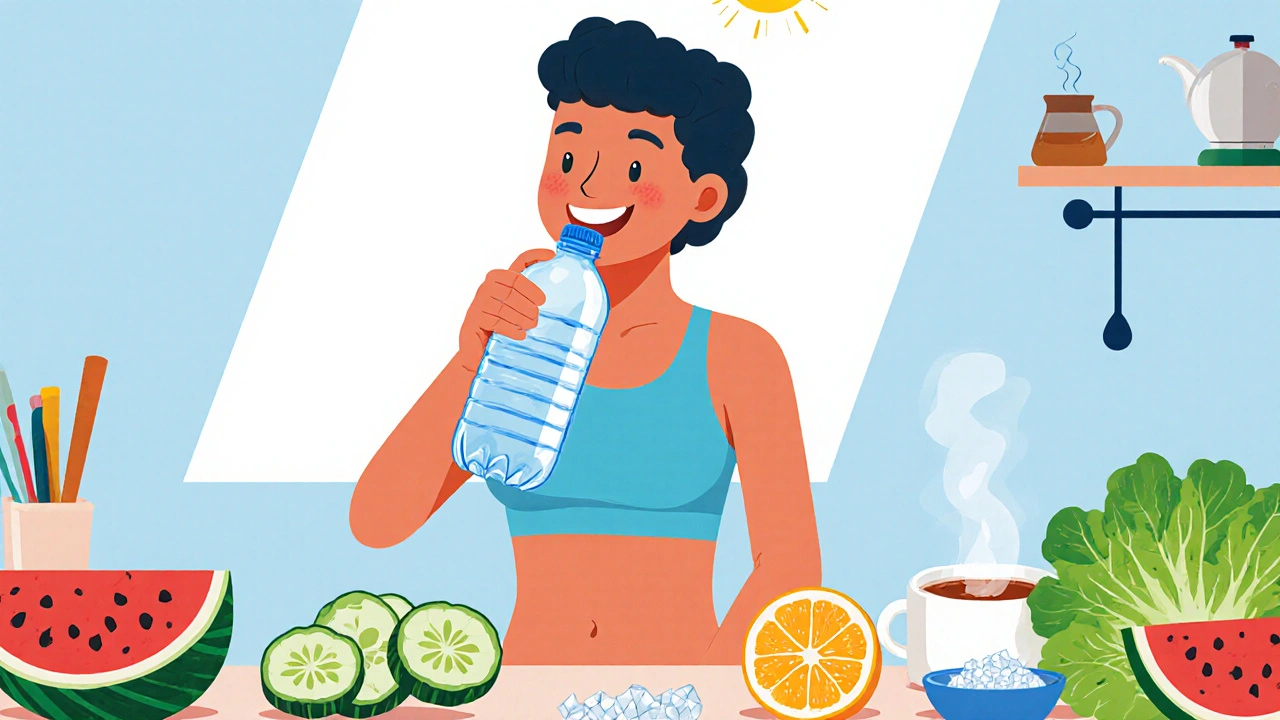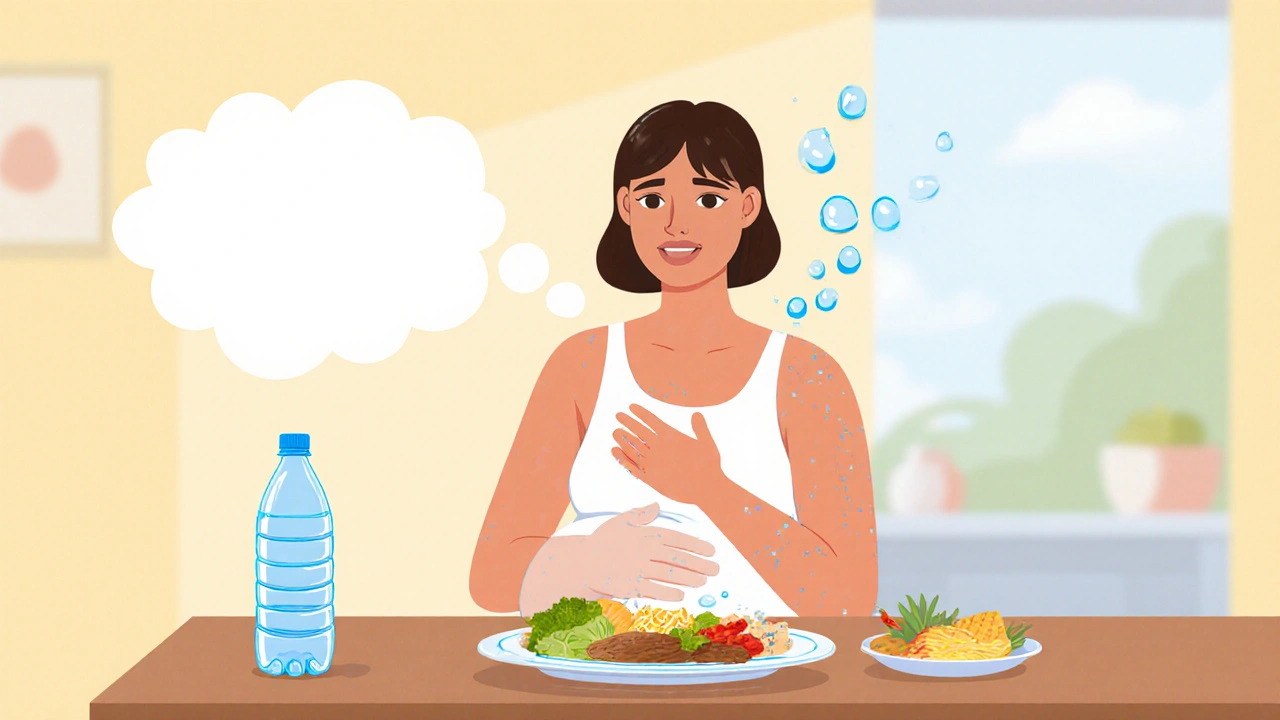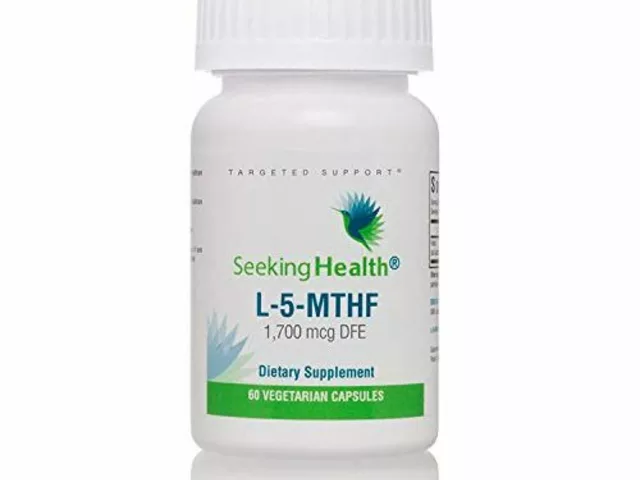Ever notice that tight, uncomfortable feeling in your belly after a meal and wonder if drinking more water could actually help? The link between bloating and dehydration is real, and understanding it can make a huge difference in how you feel day to day.
What is bloating?
Bloating is a sensation of fullness, swelling, or visible distention in the abdomen caused by excess gas, fluid, or undigested food. It can range from a mild puffiness to a painful, tense stomach that makes clothes feel tighter.
Common triggers include:
- Eating large meals quickly
- High‑fiber foods that ferment in the gut
- Carbonated drinks
- Hormonal shifts, especially around menstrual cycles
- Underlying conditions such as irritable bowel syndrome (IBS) or smallintestinal bacterial overgrowth (SIBO)
What is dehydration?
Dehydration is a state in which the body loses more water than it takes in, leading to a deficit that affects normal physiological functions. Even a loss of 2% of body water can impair cognition and cause physical discomfort.
Typical signs to watch for:
- Dry mouth or sticky feeling in the throat
- Dark‑yellow urine (clear urine means you’re well‑hydrated)
- Fatigue or light‑headedness
- Headaches
- Skin that loses elasticity when pinched
How dehydration fuels bloating
The connection isn’t obvious, but when you’re low on water, your body tries to retain any fluid it can find - often in the abdominal cavity. This fluid shift creates a feeling of heaviness that mimics or worsens true bloating.
Three physiological pathways explain the overlap:
- Reduced gastrointestinal motility: Water helps move food through the intestines. Without enough fluid, transit slows, leading to fermentation of carbs and extra gas.
- Electrolyte imbalance: Dehydration often means a drop in potassium and an excess of sodium. Sodium pulls water into the gut lining, expanding the belly.
- Gut microbiome disruption: A dehydrated gut environment favors gas‑producing bacteria, especially those that thrive on undigested carbs.
Practical ways to stay hydrated and tame bloating
Here’s a step‑by‑step plan you can start today.
- Set a baseline: Aim for about 2liters (8 cups) of water a day for most adults. Adjust if you exercise, live in a hot climate, or are pregnant.
- Spread intake throughout the day: Keep a reusable bottle at your desk, in the kitchen, and in your bag. Sip, don’t gulp.
- Include electrolytes: When you sweat heavily, add a pinch of sea salt or a splash of citrus to your water. Electrolytes like sodium, potassium, and magnesium help retain the fluid where your body needs it most.
- Eat water‑rich foods: Cucumbers, watermelon, oranges, and lettuce can contribute up to 20% of daily fluid needs.
- Limit diuretic drinks: Caffeine and alcohol increase urine output. If you enjoy coffee, keep it to one cup and follow with a glass of water.
- Balance sodium intake: High‑salt meals trigger your body to hold onto water. Choose fresh herbs, lemon zest, or low‑sodium broth instead.
- Boost potassium: Foods like bananas, sweet potatoes, and beans help counter sodium‑induced water retention.
- Mind fiber timing: Fiber is great for regularity, but too much at once can ferment and cause gas. Spread high‑fiber foods across meals and pair them with water.

Foods and drinks that support a flat stomach
These items combine hydration with nutrients that calm the gut.
- Water - the gold standard. Aim for room temperature; very cold water can sometimes slow digestion.
- Herbal teas (peppermint, ginger, fennel) - gentle diuretics that soothe the digestive tract.
- Probiotic‑rich foods (yogurt, kefir, kimchi) - nurture gut microbiome to reduce gas‑producing bacteria.
- Low‑FODMAP fruits (berries, kiwi) - provide fiber without the fermentable sugars that cause bloating.
- Chewy, water‑dense snacks like celery sticks - help trigger the swallow reflex that signals the brain you’re hydrated.
Common pitfalls that sabotage hydration
Even if you think you’re drinking enough, some habits can tip the balance.
- Relying on sugary drinks: Soda and juice add sugar, which draws water into the gut and can increase gas.
- Skipping meals: When you’re hungry, you may drink less, but your body still needs fluid to process the next meal.
- High‑salt packaged foods: Chips, canned soups, and fast‑food sauces raise sodium levels and cause water retention.
- Excessive low‑carb diets: Very low carb intake sometimes reduces glycogen stores, which hold water, leading to temporary “fluffiness” during re‑hydration.
When to see a healthcare professional
Bloating and dehydration are usually manageable, but certain signs call for a check‑up.
- Persistent pain lasting more than a week
- Unexplained weight loss or gain
- Blood in stool or severe constipation
- Rapid, unexplained swelling of the abdomen
- Signs of severe dehydration (confusion, rapid heartbeat, fainting)
If any of these appear, schedule an appointment with your doctor or a gastroenterology specialist.

Quick hydration checklist
- Carry a 500ml water bottle and refill at least three times daily
- Add a pinch of sea salt or a squeeze of lemon to one glass per day
- Eat at least two water‑rich fruits or vegetables each meal
- Swap one caffeinated drink for herbal tea
- Track urine color - aim for pale yellow
Frequently Asked Questions
Can drinking water right before a meal cause bloating?
A small glass (about 150ml) can actually aid digestion by helping food move smoothly. Large volumes may stretch the stomach temporarily, which some people interpret as bloating.
Is sparkling water worse than still water for bloating?
The carbon in sparkling water adds gas to the stomach, so it can increase the feeling of fullness. If you’re prone to bloating, stick with still water or let sparkling water sit for a few minutes to let bubbles dissipate.
How much water should I drink if I exercise heavily?
For intense workouts, add 500ml of water for every 20minutes of sweating. Including an electrolyte source (sports drink, coconut water, or a pinch of salt) helps replace lost minerals.
Can dehydration cause constipation?
Yes. Water softens stool and supports peristalsis. Without enough fluid, the colon absorbs more water from waste, leading to hard, difficult‑to‑pass stool.
Are there any herbal teas that specifically reduce bloating?
Peppermint, ginger, and fennel teas are well‑known for relaxing the intestinal muscles and reducing gas. Sip a warm cup after meals for best results.
Comparison Table: Dehydration vs. Bloating Symptoms
| Symptom | Dehydration | Bloating |
|---|---|---|
| Stomach tightness | Occasional, due to fluid retention | Common, from gas or fluid buildup |
| Urine color | Dark yellow or amber | Typical, unless also dehydrated |
| Dry mouth | Frequent | Rare, unless dehydration present |
| Weight fluctuation | Often slight loss | Sudden temporary gain (water weight) |
| Headache | Common | Uncommon |
Keeping a steady flow of water, electrolytes, and mindful food choices can break the cycle where dehydration fuels bloating. Start with small, sustainable habits and watch how your belly feels over the next few weeks. You’ll likely notice less puffiness, better digestion, and more energy throughout the day.





October 17, 2025 AT 14:56 PM
So you’ve just dropped another “how‑to‑stay‑flat” essay on the internet.
Honestly, reading it feels like watching a hamster run on a wheel-lots of motion, no real progress.
You’re right, dehydration can make your belly feel like a water balloon, but you act like it’s the only villain in town.
There are millions of reasons why people bloat, from the cheap soda they sip to the stress they hide behind.
Sure, drinking two liters a day sounds noble, but most of us can’t remember to drink water when we’re glued to a screen.
Your step‑by‑step plan reads like a grocery list written by a fitness influencer on a weekend binge.
I see the electrolyte tip, the cucumber suggestion, the herbal tea love‑song, and I wonder if you ever tested any of this on yourself.
If you had to pick one thing that actually moves the needle, it’s probably cutting back on processed salty snacks, not adding a pinch of sea salt to your water.
Also, the claim that cold water slows digestion is debatable; your gut doesn’t care about temperature as much as it cares about volume.
In the end, you’re selling a lifestyle that feels like a subscription service-pay attention, sip water, and hope your belly behaves.
People with IBS already know that fiber timing matters, so telling them to “spread it across meals” is just stating the obvious.
The table comparing symptoms is nice, but it repeats what any doctor would show you during a quick exam.
Your quick checklist is the real hero, but it could have mentioned the absurd amount of sugar hidden in flavored waters.
If you want to really help readers, drop the buzzwords and share a personal anecdote about a day you felt less puffy.
Until then, this piece is another well‑meaning but slightly preachy reminder that water is good, which we all already know.
October 18, 2025 AT 18:43 PM
i think water is like the universal language of the body, unspoken but always present, ya know?
in many cultures they greet the sun with a glass of water, believing it balances the humours.
the article nails that connection, but sometimes i feel the tone is a bit too clinical for the everyday folk.
still, i love the tip about herbal teas, they’re like tiny cultural ambassadors in a cup.
keep it real, keep it simple, and maybe drop a lil' story about grandma’s cucumber water.
October 19, 2025 AT 22:29 PM
they don't want us to know that the water industry is pulling the strings behind the “hydration” hype.
big bottled water corporations fund a lot of health blogs, and guess what? they love to push electrolytes so you buy their fancy powders.
so while the article says sip water and add a pinch of sea salt, the real agenda is selling you more “premium” hydration solutions.
also, the claim that carbonated water is worse is just a distraction; the real gas is the hidden sodium in processed foods.
look at the table – it’s neat, but they left out the fact that many “clear” drinks are loaded with hidden sugars.
stay skeptical and keep your tap running.
October 21, 2025 AT 02:16 AM
hey i saw you wrote about celery sticks, but did you ever try them after a salty fast‑food binge?
i swear the next day my belly felt less puffed up when i chugged water with a lemon slice while munching those sticks.
maybe you should add that hack to the checklist, cause most folks ignore the post‑meal water boost.
also, i noticed you didn’t mention the dreaded “cola‑induced” belly‑bloat, which is a big thing.
October 22, 2025 AT 06:03 AM
they hide the truth about how big pharma uses dehydration to push pills, not just water.
October 23, 2025 AT 09:49 AM
i get the whole “drink more water” spiel, but let’s be real-if you’re already over‑hydrated, you’ll just feel bloated anyway.
the key is balancing electrolytes like a painter balances colors; too much sodium and you end up with a soggy canvas.
October 24, 2025 AT 13:36 PM
OMG-THIS IS WHAT OUR GREAT NATION NEEDS, A SIMPLE WATER PLAN TO KEEP OUR BELLY'S SHAPE AND OUR SPIRITS HIGH!
BET YOU DIDN'T KNOW THAT THE GOVERNMENT'S SECRET AGENCIES ARE PUSHING SYRUP‑LADEN DRINKS TO KEEP US COMPLACENT, WHY NOT TURN TO GOOD OL' PURE WATER?
AND YEAH, SPARKLING WATER MAY BE A TRAP, BUT OUR ANCESTORS DRANK FROM STREAMS-NO BUBBLES, NO BLOAT!
LET'S RECLAIM OUR HEALTH, ONE GLASS AT A TIME, AND SHOW THOSE CORPORATE GIANTS THAT WE WON'T BE SWAYED BY FIZZY LIES!!!
October 25, 2025 AT 17:23 PM
great points about the electrolytes, especially the pinch of sea salt-it's a simple tweak that can make a huge difference.
also, the suggestion to pair high‑fiber foods with water helps prevent the fermentation that leads to gas.
for anyone tracking their urine color, a pale yellow shade is a reliable visual cue for proper hydration.
October 26, 2025 AT 20:09 PM
let's break this down in a way that's easy for everyone.
first, aim for about 2 L of water daily, but listen to your body-thirst is a natural indicator.
second, incorporate water‑rich foods like cucumbers and watermelon; they count toward your fluid intake.
third, if you notice persistent bloating despite staying hydrated, consider consulting a professional to rule out underlying conditions.
October 27, 2025 AT 23:56 PM
imagine your gut as a harmonious orchestra, each instrument playing in sync when you nourish it with water and mindful foods.
the symphony of hydration not only eases the belly’s tightness but also lifts your spirit, turning ordinary days into vibrant experiences.
stay hopeful, stay hydrated, and let your inner melody shine.
October 29, 2025 AT 03:43 AM
Just drink water, period.
October 30, 2025 AT 07:29 AM
the science is crystal clear: adequate hydration supports digestion, prevents constipation, and reduces bloating-anyone ignoring this basic principle is basically choosing discomfort over health. 🌟 stay accountable, choose water, and stop making excuses. 💧